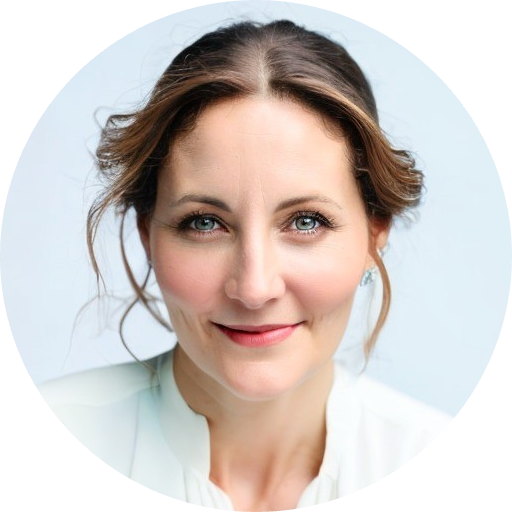How digital nomad families balance work, ‘world schooling’ and travel

Digital nomading may seem like it’s only feasible for solo travelers – but that’s not always the case.
Lauren Hill and her family have spent the last few years sailing around the world, on their own sailboat. That’s meant navigating not just the sea, but how to balance work and “world schooling” for their two young children.
In a sense, much of their education is the travel itself. Rather than learning about history and cultures from textbooks, the 11- and 9-year-olds get a far closer view. Their most notable ventures have been learning about the slave trade while in the Caribbean, the Mayans while in Belize, and turtle rehabilitation while at the beach.
“It’s facilitating a connection between real world travel experiences and what technical skills they need for writing and everything else and bringing it together,” said Hill. “I hated history in school, but I feel like here they see everything with their own eyes. We read about it, but then they get to place themselves in front of it.”
That’s not to say it’s always as idyllic as it sounds. To make ends meet, both parents work remotely, often from the boat itself. As a freelancer Hill works around 20 hours a week, largely helping health tech startups to build business plans and provides business coaching. Her husband works full time for a U.S.-based consultancy, which is fully remote and his coworkers love to ask him about where in the world he’s located at any one point.
“It is exhausting,” said Hill. “If the kids have a bad day, everyone has a bad day. They have to go to bed on time because I can’t deal with them being really cranky in the morning and getting on with work because it throws my day off and then I don’t get to do my work and it’s this catalytic effect.”
But the Hills work together to create a tight schedule that ensures they don’t drop the ball on work, or parenting. Most of the time it works.
“With a lot of the client work, I work in the evenings so it’s not too difficult,” said Hill. “If I have meetings during the day, my husband and I tag team. I’ll say something like ‘I have a two-hour call with a client, but the kids are working on math so can you go sit with your laptop with them and hang out there.’ There’s a level of give and take where we need to cover each other’s backs to be able to focus and deliver what we need to for our work.”
For freelancers, it’s a little easier to work as a digital nomad because you largely work on contract and the employer doesn’t care where you are. But it takes a little more time to establish trust between an employer and a full-time employee who is traveling the globe.
“It’s great once you’re in that position and you’ve built that reputation and credibility,” said Hill. “But we do have to battle a perception of a lack of professionalism and overcome that. You have to work doubly hard to make people believe that you’re serious about working and that you have the right skills. They look at your lifestyle, and although they admire it, they associate it with somebody that isn’t delivering or committed. I feel like I would hire anyone that has crossed an ocean because of the preparation that’s needed to do that. Other people don’t value those skills in a professional context.”
Part of maintaining that professional demeanor relies on a strong internet connection, so there are rarely communication issues on meetings. That’s not as simple as it sounds when working from a sailboat.
The Hills have had numerous occasions when video calls have crashed and they’ve been moored in areas that don’t offer coworking spaces they can use in an emergency. The Hills have invested in a low latency, broadband internet system, which has helped a lot. Working remotely has its distractions, and for the Hills that has sometimes involved water unexpectedly pouring through the hatch during important work calls. But for them, it’s worth it.
At the same time, the kids need to keep busy and get an education. The Hills, now stationed in Guatemala, are enrolled in affordable language immersion programs and local clubs and activities like horseback riding, swimming, and gymnastics. While they are there building skills and creating local friendships, Hill can finish her work.
Rise of digital nomad families
The rise of employee nomading has been well documented, but the lifestyle is increasingly appealing to families as well as individuals.
The Hills have encountered numerous other families doing the same thing. It’s helped build a supportive community, with parents taking all kids for activities while others work and vice versa.
Elodie Ferchaud is a digital nomad with her family. While homeschooling is an option Ferchaud decided to take advantage of Boundless Life, a company that provides consistent education around the world. It has locations in Portugal, Italy, Indonesia and Greece, where the Ferchauds are now.
Ferchaud works full-time in sales and marketing, which means that with a tight schedule it was better to enroll the children somewhere else rather than trying to tackle homeschooling herself. At the same time, they’re able to change locations every three to four months to make the most of every season.
“I’ve always looked for solutions for the girls to have a solid education when we are traveling,” said Ferchaud, who has a 4-year-old, 7-year-old, and 9-year-old. “They’re able to learn while we have our space to work, but still in an environment that is much more alternative than traditional school.”
Each classroom that they enter, despite where it is in the world, looks the same, which helps provide familiarity for the children. Most families participate in the program in multiple locations, which means children also have the opportunity to see the same people even if they’re in a new country. The company also provides furnished homes and coworking spaces to make things easier for parents too.
“My work is quite demanding,” said Ferchaud. “It’s already quite a lot when you’re a full-time working mom or dad to juggle work and quality time with the kids. Now, when I’m not working, I can really focus on connecting with my children. We have so much more quality time as a family.”
She said she’s talked to a lot of people who thought that their traveling days would be in the rearview after they had children, especially when it’s rare for other digital nomad families to share their experiences publicly. But that doesn’t need to be the case.
“We’re seeing this network where you can help each other and families are together living this life,” said Ferchaud. “It’s a village that helps to better manage as a family. We’ve seen more and more families interested in this model. We’re trying to change the view on digital nomads for families.”

